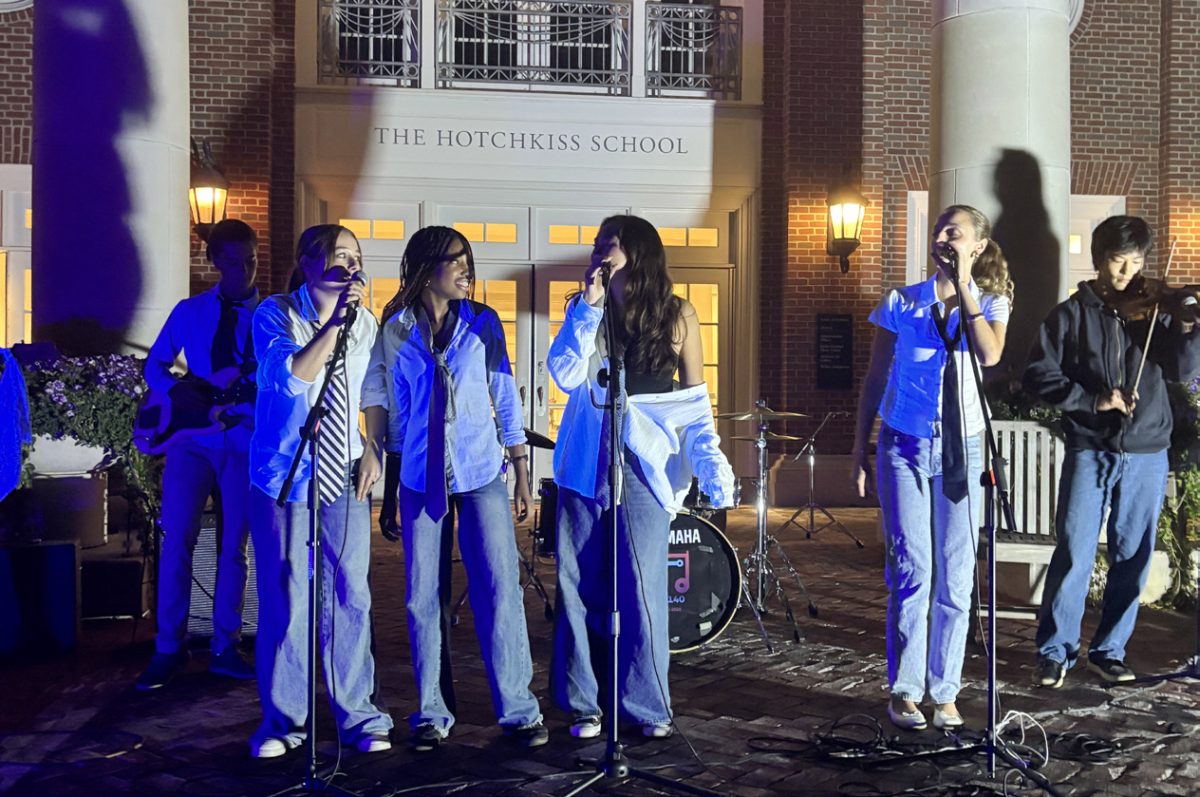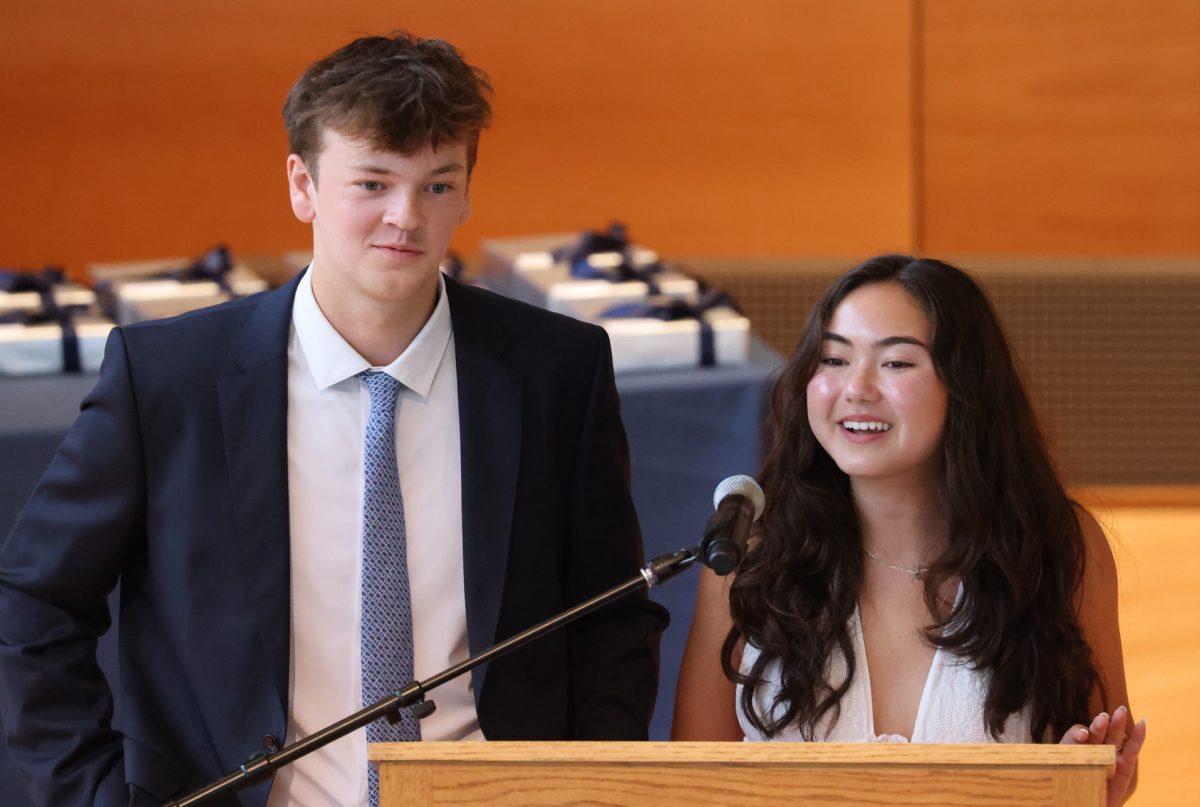This year’s all-school read, the 2022 novel Our Missing Hearts by Celeste Ng, explores family dynamics, racism, political oppression, and censorship. During All-School Meeting on Thursday, October 10, seven students and two librarians shared their experiences reading and reflecting on the novel.
Our Missing Hearts was selected by the all-school read committee in consultation with Head of School Mr. Craig Bradley. Maeve Hottenrot ’25, a member of the committee, said, “This year, we wanted to select a book that was relevant to the upcoming election and also aligned with the celebration of women in our 50th anniversary of coeducation.”
Our Missing Hearts offers a dystopian vision of the United States, in which the Preserving American Culture and Traditions Act (PACT) fuels political oppression and xenophobia. In this future, the children of “subversive” parents are taken away and given to “more suitable” families. Maadhavan Prasanna ’25, a panelist and a member of the all-school read committee, said, “In this book, we see how polarizing political narratives can become dangerous for social minority groups.”
In the all-school panel, facilitated by Dr. Katie Fleishman, head of the English department, panelists shared their impressions of the novel and reflected on the issues it raised, discussing etymology, immigrant families, social activism, and other topics.
“I focused on the decolonization of voice—creating alternative channels through which to narrate stories,” said Jeffrey Lin ’25. “Censorship and epistemic violence, which limit free expression, constitute principal forces of social division and polarization. Our Missing Hearts impels us to reconsider the social structure by which we are surrounded.”
Ms. Kim Gnerre, associate director of the Edsel Ford Memorial Library, and Mr. Cooper Puls, access services coordinator, also took part in the discussion. “I joined the panel because I felt that I needed to convey a librarian’s perspective,” said Ms. Gnerre. “The more people read about dystopian worlds, the more they understand that what’s happening now [with book bannings around the country] can lead to the same outcome unless people stand up and say ‘This is wrong’ and ‘This should not be happening.’”
The panel received positive feedback from the student body. Nurry Punnahitanon ’25 said, “I now have a greater appreciation for the librarians’ work and realize how privileged I am to have the library as a resource.”
On Thursday evening, students were invited to attend a session with visiting speaker Ms. Emily Drabinski, former president of the American Library Association (ALA). Ms. Joan Baldwin, curator of special collections, said, “The focus of Emily Drabinski’s coast-to-coast work as ALA president—book censorship and freedom of speech—are twin issues that continue to plague American libraries.”
Ms. Drabinski is no stranger to the novel’s theme of censorship. Upon her appointment as president of the ALA, Ms. Drabinski tweeted, “I cannot believe that a Marxist lesbian who believes that collective power is possible to build and can be wielded for a better world is the president-elect of @ALALibrary. I am so excited for what we will do together. Solidarity!” In response, Republicans in multiple states threatened to withdraw their state chapters from the ALA. In an interview with Fox News, Republican Texas State Rep. Brian Harrison said, “Texans don’t want their tax dollars going to fund some woke, ultra-liberal Marxist socialist to indoctrinate their children.” At her talk, Ms. Drabinski discussed the problems of censorship and challenges to intellectual freedom currently faced by libraries.
Programming around the all-school read will continue in February with a visit by novelist and short story writer Ms. Lauren Groff, who opened a bookstore featuring banned titles in Gainesville, Florida and wrote The Matrix, an Upper Mid summer read. Additionally, Ms. Ada Limón, the 24th poet laureate of the United States, will visit the school in May.






